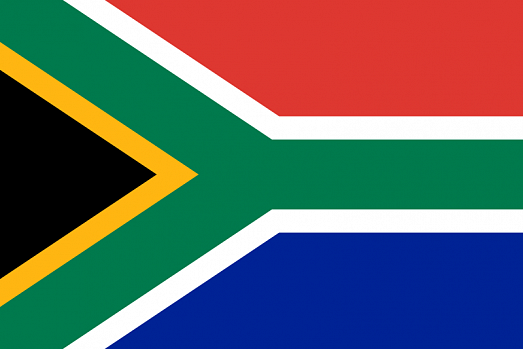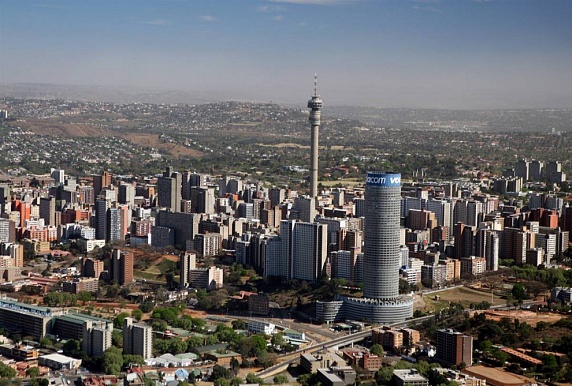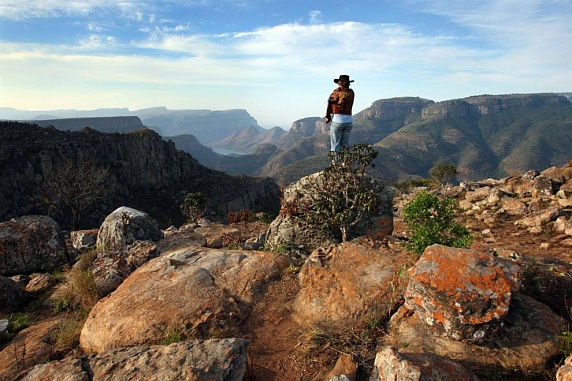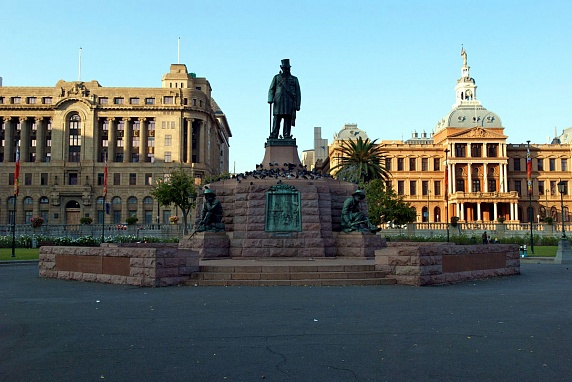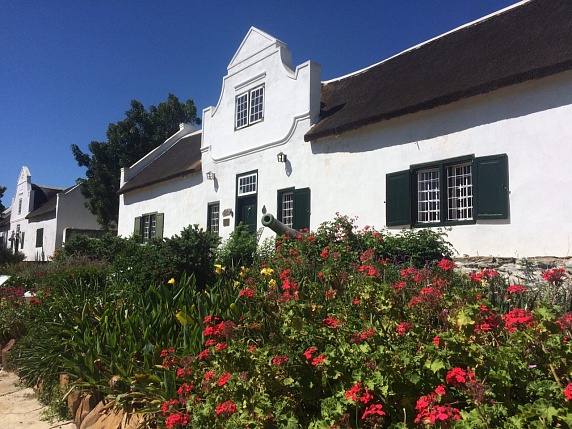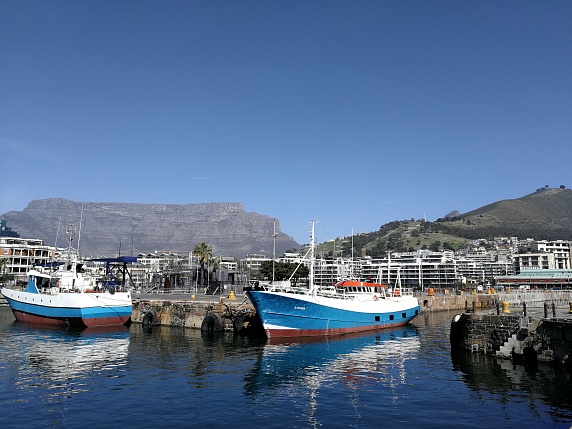 the Republic of South Africa
the Republic of South Africa
Speech by Russia’s Minister of Foreign Affairs S. Lavrov with answers to questions posed by the mass media during a joint press conference following the outcome of negotiations with the South African Minister of International Relations and Cooperation M. Nkoana-Mashanabe, Moscow, September 2, 2013
Dear Ladies and Gentlemen.
I am sincerely glad to once again welcome to Moscow my colleague and a good friend Ms. M. Nkoana-Mashanabe, Minister of International Relations and Cooperation of South Africa.
Our negotiations were meaningful and based on trust i.e. with a traditional atmosphere characterised by relationships between the leaders of two countries, in this case between the governments of Russian Federation and the South African Republic.
We have considered tasks within the scope of a joint declaration, signed in Durban in the March of this year, which elevates our relationships to a new level of quality of comprehensive strategic partnership. We are bound by strong ties of friendship and mutual respect, and fused together by a willingness to muster profitable and diversified cooperation.
This year can indeed be considered an historical one concerning relationships between Russia and South Africa. Two summits took place, and the results of the negotiations of President V. Putin and President J. Zuma in Durban on March 26, and in Sochi on May 16, provided powerful momentum for the whole scope of bidirectional communications. The meeting we had today allowed for the definition of the next steps concerning the implementation of these paramount agreements.
We have agreed on tasks which will promote a high rate of interaction. The main trends of the joint work will be focused on increasing the turnover and the investment cooperation actuation.
I am glad to provide my colleague official notice recording intergovernmental agreement concerning the establishment of a Russian trade mission within the Russian Embassy in South Africa. The issue of this notice signifies our completion of the procedure of the execution of this very important agreement.
Today we have confirmed the existence of a significant potential for bidirectional cooperation. Russia is ready to contribute to the establishment of a nuclear power industry in South Africa; our economic operators interact in the area of new and renewable energy sources. There are interesting projects in the aircraft engineering industry. In the March of this year in Johannesburg, the regional service centre of Russian-made helicopters was opened, and its power is growing; it has been kindling the interest of other countries in the region. There is being planned joint production of light multipurpose helicopters with our South African friends.
The practical details will be discussed at today's upcoming meeting with Ms. M. Nkoana-Mashabane, Co-Chairperson of the Bidirectional Mixed Intergovernmental Committee of Trade and Economy Cooperation and Minister of Natural Resources and Ecology, the head of its Russian division being S. Donskoi.
We are establishing connections in the humanitarian domain. At the request of those in South Africa, the number of scholarships has been increased more than twice, courtesy of the Russian Federal Budget for the education of South African citizens in Russian Federation. There is being successfully developed a cooperation between the Russian Fund for Fundamental Research and the National Research Fund of South Africa. This has involved regular competition of scientific projects, with the selection of those that will be jointly implemented by scientists of our countries.
There has been outlined mutual interest in the development of military-technical cooperation. To investigate our particular possibilities in this area, the South African delegation visited the air show "MAKS-2013", which has just finished in Moscow, and, as we see it, South African military got positive impressions from the visit.
Today we have shared opinions on the key issues of international agenda. Naturally it was first and foremost about the preparation of the "The Group Twenty" summit in Saint Petersburg. We are grateful to the South Africans for their essential assistance to the Russian chair in the organisation of this event. South Africa is one of a number co-chairs of the group regarding development issues, preparing appropriate summit proposals. On the margins: during the "twenty" summit there is planned a conversation between the Presidents of Russia and South Africa and a meeting of the leaders of BRICS countries. We have discussed tasks that will be considered by our leaders and agreed to continue foreign interaction within BRICS "on the margins" of the session of the UN General Assembly in New York closer to the end of September.
We have confirmed our position regarding the further democratisation of international relations in the financial, economic and political domains. We have outlined the necessity of the continuous stand on the fundamental basis of international legislation and the United Nations Charter in the interests of working towards the establishment of fair and democratic world order – our positions go hand in hand fundamentally in this respect.
We of course initially considered the situation in the Near East and North Africa i.e. the Syrian crisis and events in Egypt, as well in other countries of the region. We compared opinions about lies concerning matters in some "hot spots" in Africa (South of the Sahara) and in particular events in the Eastern districts of the DRC. In the majority of conflict situations, which are attracting attention of the African Union and the international community, we outline initiative and responsible roles of South Africa separately and in various formats e.g. within SADEC (Southern African Development Community), the aims being the search for conditions for national reconcilement, dialogue organisation, political processes and the transfer of various crisis situations into the sandbox of constitutional situations, and the facilitation of democratic and continuous social-economic development of communities. We are in the process of outlining this role of South Africa and appreciate this State's cooperation to the development of overall relationships between the Russian Federation and the African Union, as well other subregional organisations within the continent.
I'm sincerely grateful to my colleague for the joint work.
Question: It is known that the meeting of the leaders of the BRICS countries will take place "on the margins" of the "Group of Twenty" summit. The plan is discussion of the coordinated actions of developing countries, in particular regarding the BRICS group's involvement in foreign-exchange markets (has India addressed this request)? Perhaps it was discussed today as well?
S. Lavrov: we haven't discussed this subject right now, as the plan is to discuss fully the involvement of the participating BRICS countries. But we shared opinions concerning questions which our leaders will be invited to discuss when the heads of the five countries will meet "on the margins" of the "Group Twenty" summit in Saint Petersburg. These questions are first and foremost connected with the necessity to coordinate actions within the "Group Twenty" further as part of top-priority tasks at this stage. This involves the creation of conditions for efficient value-adding investments and additional workplaces. It also concerns the finalising of decisions of previous "Group Twenty" summits, in particular decisions accepted in Autumn 2010 regarding the reform of the quotes and votes systems in the International Monetary Fund. This task is not yet possible to complete due to counteraction by several leading members of "Group Twenty". However, for BRICS countries this question is crucial, as it is for our like-minded fellows in "Twenty", such as Mexico, Argentina, Indonesia.
I am referring to the agreement within the framework for the doubling of the IMF quotes concerning the transfer of six percent of quotes and, correspondingly, votes for developing economies and fast-growing markets, which will promote the democratisation of the international monetary and financial system. The BRICS countries are united in the necessity to get what was agreed from "Group Twenty".
In addition to that, we assume that our leaders will discuss the progress of tasks defined during the last summit (BRICS) in Durban in the March of this year which concern the creation of a BRICS Development Bank and the "pool" of reserve currencies, which will undoubtedly help to prevent too much negative impact on the economies of our countries as a result of exchange market fluctuations. Thus, all these questions will be covered in the agenda; and in my opinion they are covering the subjects that you've mentioned.
Question: Do you consider that "Group Twenty" summit in Saint Petersburg could become a basis for the resumption of the dialogue concerning peaceful regulation of the situation in Syria?
S. Lavrov: As you know, "Twenty" was initially created only for solving financial and economical problems, where regulation is necessary for the world's economy and finances to recover from the crisis. That's why the agenda of the forthcoming summit in Saint Petersburg does not include the topic of Syria.
It appeared – and I will discuss this later – in the agenda of the "Group Eight" summit that took place in Lough Erne in June of this year, but it is not include in the agenda of "Twenty". Besides that, any leader participating in the "Group Twenty" summit may touch on any question. This is mutually understood. We will be ready for such conversations.
The position of Russia is clear and consistent. It was absolutely unambiguously confirmed these days by the President of Russian Federation V. Putin. We are dedicated to achieving agreements at the "Group Eight" summit, including with regard to the chemical weapon problem. All eight leaders of the "eight" participating countries, along with the EU direction, formally announced that the use of chemical weapons by anyone is unacceptable, and they announced that any hints about possible use of such weapons must be investigated professionally and dispassionately, and the investigation results must be presented to UNSF. We hope that those who signed this claim will respect our general agreement and will act in accordance with it.
We still believe in uniform political regulation. In this regard I do not recall anybody doubting the necessity of convening the Geneva conference for the implementation of the communique accepted on June 30, 2012. Even our American partners, in their announcement of their decision to strike against Syria, which was based on some super-convincing and at the same time super-secret information which can't be presented to anybody, still mentioned that they prefer a political approach. And after "having bombed" Syria they will be ready to convene a conference again, conditionally called "Geneva-2". But while at the time of the announcement of the Russian-American initiative regarding conference convention (which happened in this building on May 7 this year during the visit of US Secretary of State J. Kerry) Americans and other sponsors of the opposition still were not able to announce loudly and unambiguously that they were ready to forego prior conditions to such a conference for the purpose of establishing a consensus alongside government delegation about the methods for the complete implementation of the Geneva communique dated June 30, 2012 (until now the opposition have not agreed to participate in any conference without any external military threats), then I doubt very much that after striking Syria –except if intelligence triumphs, making it possible to avoid it, of course – the opposition will become more pliable. The opposite is more likely. Appeals to the USA can already be heard: "Don't limit yourself with pinpoint strikes! Bomb wider, deeper!"
If, to our great regret, any action announced by US President B. Obama will happen, then, regardless of words about "Geneva-2", this will put off the perspective of conducting such a forum far away, if not forever. But in some other ways the political regulations will prevail anyway. It is just necessary to understand that the more we defer, the longer we (especially those who are influencing the opposition) will not be able to make them agree to participate in the conference, and the more victims we see, including civilians. I very much expect that the response to what is happening with regard to the incident with supposedly applied chemical weapons dated August 21 of this year is not absolutely justified, and we will consider directing natural specialist questions in response to naked charges about the application of such weaponry to the Syrian government, who, is despite everything, is "pushing" the military scenario, searching for anything make-believe.
Question: the USA is justifying its possible invasion of Syria in the protection of its own national security interests. In particular, as B. Obama declared, despite guaranteeing the supply of sources of hydrocarbonic resources and providing safety for Israel, Israel has already started pinpoint strikes against SAR. Is Moscow wary that, in the event that the US directs aggression against Syria, the national security of Russia will be also affected? What will be the Russian position be if SAR strikes back at Israel in response?
S. Lavrov: I will not read "coffee ground". I will say only one thing: national security applies above all to the security of the people and their right to live. Of course, the supply of hydrocarbons in addition to the huge reserves that you have yourself perhaps fits very well with the notion of national security, but it's not a top priority.
The national security of the countries in the region will undoubtedly suffer – and we have seen how it suffered after the invasion of Iraq after what happened in Libya. According to available statistics, illegal weaponry and fighters have already spread to a minimum of twelve countries from Libya. Of course, national security in the countries in the surrounding region is suffering as a result of the main evil of today – terrorism. Whichever way you turn – Lebanon, Yemen, Iraq, Afghanistan, Syria – terrorists have gained ground and feel quite comfortable.
This common challenge must unite all of us. If in our handling of national security we are putting the lives of the people at the top then we will be united by the fight against terrorists and extremists. And then we must say to ourselves that, regarding politics in this region and other regions, we will be governed not by personal passions, preferences and dislikes, but by a principle of fighting against those who support, finance and promote terrorist methods for achieving political aims. In this sensе our national interest is connected directly to the situation in the Near East, particularly in Syria.
For a quite long time now we have experienced quite a negative influence of increased international terrorism, whose operatives are trying to influence our allies in Central Asia via Afghanistan and non-controlled areas of Pakistan, and via their Russian territories. We have become more efficient in catching them, but they continue to creep in and find new ways to perform their dirty business. I am stressing again that this counteraction must be uniting the beginning as the main element of providing national security to all countries without exception.
In the wider perspective, this concerns the national security of everybody i.e. States, because depending on what questions are being solved, the state of the international system depends on it. If anybody is trying to make rude violations of international legislation a norm, then this will create chaos and a situation where the UN Charter and principles are signed by all the states of the world, including the principle of unanimity of permanent members of UNSF – "veto" (and USA insisted on it) – then all these principles will just collapse. If anybody considers that to create such controlled chaos will be more useful than to respect international legislation and strengthen UNSF, its reputation and the UN in general, then we strongly disagree with such estimations and will be doing everything to protect international legislation, the UN Charter and UNSF prerogatives.
S. Lavrov (adding after reply of M. Nkona-Mashanbe): I would like to confirm our support to reaching agreement about the fastest reform of UNSF, to provide there fair representation of non-underrepresented regions of Asia, Africa and Latin America.
